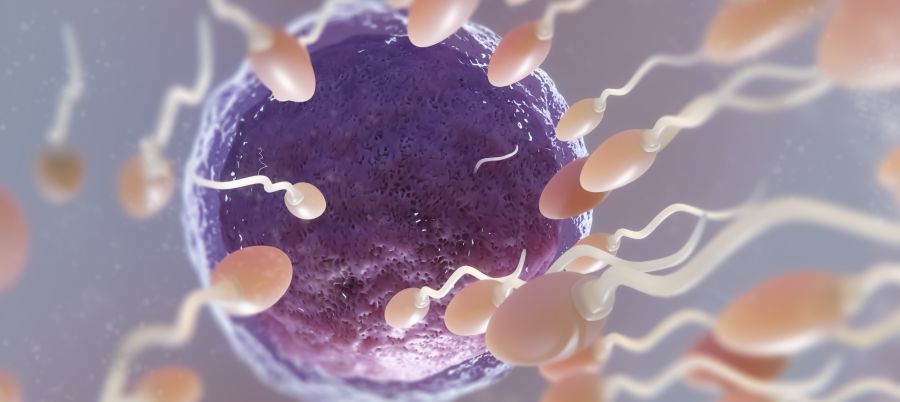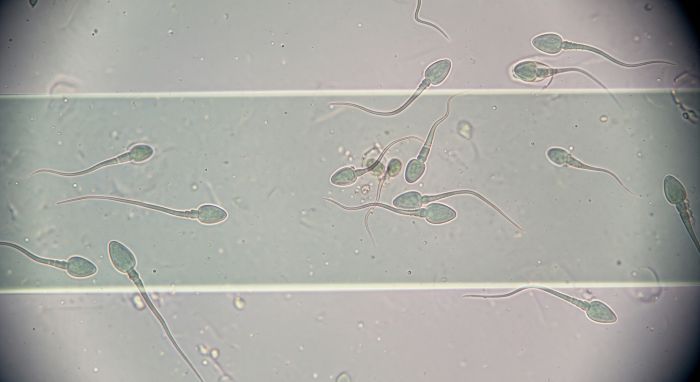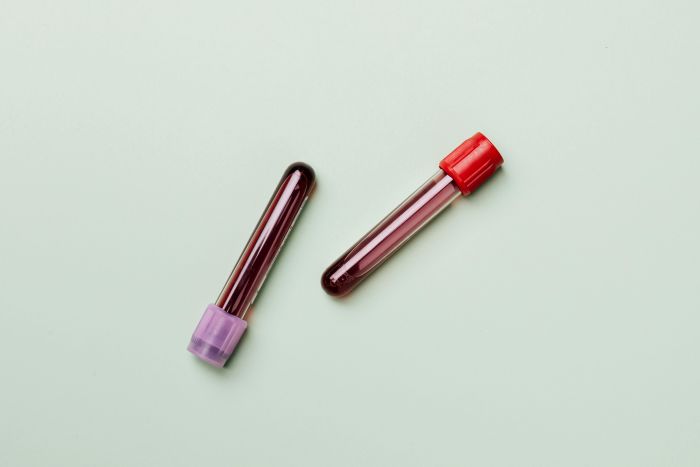Before starting your IVF journey, comprehensive testing ensures the best possible treatment plan tailored specifically for you. These essential evaluations help your fertility team understand your unique situation and optimize your chances of success.
Understanding Pre-IVF Testing: Your Foundation for Success
Starting IVF can feel overwhelming, but thorough pre-treatment testing is actually one of the most reassuring steps you'll take. Think of these tests as creating a detailed roadmap for your fertility journey. At Avida Fertility, we believe that understanding your body's unique needs is the key to developing the most effective treatment strategy.
The testing process typically takes 4-6 weeks to complete, depending on your menstrual cycle timing and specific medical history. While this might seem like a long wait when you're eager to begin treatment, this comprehensive evaluation significantly improves your chances of success and helps prevent potential complications.
Essential Female Fertility Tests
Your fertility evaluation begins with tests that assess your reproductive health comprehensively. These evaluations provide crucial information about your ovarian function, uterine health, and overall fertility potential.
Hormonal Assessment
Hormone testing forms the backbone of your fertility evaluation. These blood tests are typically performed on specific days of your menstrual cycle to provide the most accurate results.
| Hormone Test | Timing | What It Measures | Normal Range |
|---|---|---|---|
| FSH (Follicle Stimulating Hormone) | Day 2-3 of cycle | Ovarian reserve and function | 3-20 mIU/mL |
| LH (Luteinizing Hormone) | Day 2-3 of cycle | Ovulation potential | 5-20 mIU/mL |
| Estradiol (E2) | Day 2-3 of cycle | Ovarian activity | 25-75 pg/mL |
| AMH (Anti-Müllerian Hormone) | Any time | Ovarian reserve | 1.0-4.0 ng/mL |
| TSH (Thyroid Stimulating Hormone) | Any time | Thyroid function | 0.4-4.0 mIU/L |
| Prolactin | Any time | Pituitary function | 4-23 ng/mL |
According to the American Society for Reproductive Medicine, AMH levels are particularly valuable because they remain relatively stable throughout your cycle and provide insight into how you might respond to ovarian stimulation medications (Practice Committee of the American Society for Reproductive Medicine, 2020).
Ovarian Reserve Testing
Understanding your egg quality and quantity is crucial for IVF planning. The antral follicle count (AFC) performed via transvaginal ultrasound complements your AMH results to give a complete picture of your ovarian reserve.
Uterine and Tubal Evaluation
Your uterus and fallopian tubes need thorough assessment to ensure they can support a successful pregnancy. Several imaging techniques help evaluate these structures.
| Test | Purpose | When Performed | What to Expect |
|---|---|---|---|
| Hysterosalpingography (HSG) | Evaluate fallopian tubes and uterine cavity | Days 7-10 of cycle | X-ray with contrast dye injection |
| Saline Infusion Sonohysterography (SIS) | Detailed uterine cavity assessment | Days 7-10 of cycle | Ultrasound with saline injection |
| Hysteroscopy | Direct visualization of uterine cavity | Days 7-10 of cycle | Minimally invasive procedure |
| Pelvic Ultrasound | Overall reproductive organ assessment | Any time | External and internal ultrasound |
Male Partner Testing
Male factor infertility contributes to approximately 40-50% of all fertility challenges, making comprehensive male testing essential for every couple considering IVF. Your partner's evaluation is just as important as yours in determining the best treatment approach.
Semen Analysis
The semen analysis remains the cornerstone of male fertility evaluation. This test requires 2-5 days of abstinence before collection and should ideally be repeated if initial results are abnormal.
| Parameter | Normal Values (WHO 2021) | Clinical Significance |
|---|---|---|
| Volume | ≥1.4 mL | Adequate seminal fluid production |
| Concentration | ≥16 million/mL | Sperm production capacity |
| Total Count | ≥39 million per ejaculate | Overall sperm availability |
| Motility | ≥42% moving | Sperm ability to reach egg |
| Morphology | ≥4% normal forms | Sperm structure and function |
Additional Male Testing
Depending on initial semen analysis results, additional testing might be recommended to optimize treatment outcomes.
| Test | When Recommended | Purpose |
|---|---|---|
| Sperm DNA Fragmentation | Recurrent pregnancy loss or failed IVF | Assess genetic integrity of sperm |
| Hormone Testing (FSH, LH, Testosterone) | Severe oligospermia or azoospermia | Evaluate hormonal causes |
| Genetic Testing | Severe male factor infertility | Screen for genetic abnormalities |
| Physical Examination | All cases | Identify anatomical issues |
Research shows that sperm quality optimization through lifestyle modifications can significantly improve IVF outcomes, with improvements typically seen after 2-3 months of intervention (Sharma et al., 2021).
Genetic and Infectious Disease Screening
Comprehensive screening for genetic conditions and infectious diseases protects both you and your future baby. These tests are standard requirements before beginning any IVF treatment.
Genetic Carrier Screening
Genetic carrier screening helps identify whether you or your partner carry genes for inherited conditions that could affect your children. This testing is particularly important when using donor eggs or sperm.
| Screening Panel | Conditions Tested | Recommended For |
|---|---|---|
| Basic Panel | Cystic fibrosis, Sickle cell disease, Thalassemia | All patients |
| Expanded Panel | 200+ genetic conditions | Patients with family history or ethnic risk factors |
| Ethnicity-Specific | Tay-Sachs, Gaucher disease, etc. | Ashkenazi Jewish, Mediterranean, Asian populations |
Infectious Disease Testing
Both partners require screening for infectious diseases that could affect pregnancy outcomes or be transmitted to your baby.
| Test | Both Partners | Female Only | Male Only |
|---|---|---|---|
| HIV | ✓ | ||
| Hepatitis B & C | ✓ | ||
| Syphilis (RPR) | ✓ | ||
| Rubella Immunity | ✓ | ||
| Varicella (Chickenpox) | ✓ | ||
| CMV (Cytomegalovirus) | ✓ |
Specialized Testing Based on Medical History
Your individual medical history might require additional specialized testing to ensure the safest and most effective treatment approach. These tests are tailored to your specific situation and risk factors.
Autoimmune and Thrombophilia Testing
If you have a history of recurrent pregnancy loss, failed IVF cycles, or autoimmune conditions, additional testing may be recommended.
| Condition | Tests Required | Clinical Significance |
|---|---|---|
| Antiphospholipid Syndrome | Anticardiolipin antibodies, Lupus anticoagulant | Increased clotting risk during pregnancy |
| Thrombophilia | Factor V Leiden, Prothrombin mutation | Blood clotting disorders |
| Thyroid Autoimmunity | TPO antibodies, Thyroglobulin antibodies | Pregnancy complications risk |
| Natural Killer Cells | NK cell activity testing | Implantation failure investigation |
Metabolic and Nutritional Assessment
Your overall health significantly impacts IVF success rates. Comprehensive metabolic evaluation helps optimize your body for pregnancy.
| Assessment | Tests Included | Optimization Goals |
|---|---|---|
| Diabetes Screening | Fasting glucose, HbA1c, Glucose tolerance test | Blood sugar control |
| Nutritional Status | Vitamin D, B12, Folate, Iron studies | Optimal nutrient levels |
| Lipid Profile | Cholesterol, Triglycerides | Cardiovascular health |
| Kidney Function | Creatinine, BUN | Medication safety |
Studies demonstrate that vitamin D optimization can improve IVF success rates by up to 34% in women with sufficient levels compared to those with deficiency (Chu et al., 2018).
Timing Your Pre-IVF Testing
Understanding when to schedule your tests can help streamline your treatment timeline and reduce delays. Proper timing ensures accurate results and efficient treatment planning.
Cycle-Dependent Tests
Several tests must be performed at specific times during your menstrual cycle for accurate results.
| Test | Optimal Timing | Reason for Timing | Scheduling Tips |
|---|---|---|---|
| Day 2-3 Hormones | Cycle days 2-3 | Baseline hormone levels | Call clinic on day 1 of period |
| HSG | Days 7-10 | After menstruation, before ovulation | Schedule during previous cycle |
| SIS | Days 7-10 | Optimal uterine visualization | Coordinate with HSG if both needed |
| Endometrial Biopsy | Days 19-23 | Luteal phase assessment | May require cycle monitoring |
Cycle-Independent Tests
Many tests can be performed at any time, allowing for flexible scheduling around your work and personal commitments.
| Test Category | Examples | Scheduling Flexibility |
|---|---|---|
| Blood Work | AMH, TSH, Genetic screening | Any time, fasting may be required |
| Male Testing | Semen analysis, Hormone testing | Any time with proper abstinence |
| Infectious Disease | HIV, Hepatitis, CMV | Any time |
| Physical Exams | Pelvic exam, Male physical | Any time |
Preparing for Your Tests
Proper preparation ensures accurate test results and can help reduce anxiety about the testing process. Here's what you need to know to prepare effectively.
General Preparation Guidelines
Following these preparation guidelines helps ensure the most accurate test results and smooth testing experience.
| Test Type | Preparation Required | Important Notes |
|---|---|---|
| Blood Tests | Fasting 8-12 hours for some tests | Confirm fasting requirements with clinic |
| Semen Analysis | 2-5 days abstinence | Avoid longer abstinence periods |
| HSG | Take pain medication 1 hour before | Arrange transportation if needed |
| Pelvic Ultrasound | Full bladder for external scan | Empty bladder for internal scan |
Lifestyle Considerations
Your lifestyle choices in the weeks leading up to testing can impact results. Consider these lifestyle factors for optimal preparation.
| Factor | Recommendation | Timeline | Impact on Results |
|---|---|---|---|
| Alcohol | Limit or avoid | 2 weeks before testing | Can affect hormone levels |
| Smoking | Stop completely | Immediately | Impacts all fertility parameters |
| Exercise | Moderate activity | Ongoing | Excessive exercise can affect hormones |
| Stress Management | Practice relaxation techniques | Ongoing | High stress can impact test results |
Understanding Your Test Results
Receiving your test results can be both exciting and overwhelming. Understanding what your results mean helps you make informed decisions about your treatment plan.
Interpreting Common Results
Your fertility team will explain all results in detail, but having a basic understanding can help you prepare for your consultation.
| Result Category | Good News Indicators | Areas of Concern | Next Steps |
|---|---|---|---|
| Ovarian Reserve | AMH >1.0, AFC >10 | AMH <1.0, AFC <5 | Adjust stimulation protocol |
| Sperm Parameters | All WHO criteria met | Multiple parameters below normal | Consider ICSI or additional testing |
| Uterine Health | Normal cavity, patent tubes | Fibroids, blocked tubes | Surgical intervention may be needed |
| Hormone Levels | All within normal ranges | Thyroid or other abnormalities | Medical optimization before IVF |
When Additional Testing is Needed
Sometimes initial results indicate the need for more specialized testing. This doesn't mean bad news – it means your team is being thorough in developing your treatment plan.
| Initial Finding | Additional Tests | Purpose |
|---|---|---|
| Low AMH | Genetic testing for POI | Rule out premature ovarian insufficiency |
| Abnormal semen analysis | DNA fragmentation, Hormone testing | Identify treatable causes |
| Recurrent loss history | Thrombophilia, Autoimmune panel | Prevent future losses |
| Irregular cycles | PCOS workup, Insulin resistance | Optimize ovulation induction |
Cost Considerations and Insurance Coverage
Understanding the financial aspects of pre-IVF testing helps you plan effectively for your treatment journey. Testing costs can vary significantly depending on your location and insurance coverage.
Typical Testing Costs
While costs vary by location and provider, here's a general overview of testing expenses to help with your planning.
| Test Category | Estimated Cost Range (USD) | Insurance Coverage | Cost-Saving Tips |
|---|---|---|---|
| Basic Hormone Panel | $300-600 | Often covered | Bundle tests when possible |
| AMH Testing | $100-200 | Variable coverage | Some labs offer cash discounts |
| HSG | $500-1,500 | Usually covered | Verify in-network providers |
| Semen Analysis | $150-300 | Often covered | Repeat tests may have reduced rates |
| Genetic Screening | $200-2,000 | Variable coverage | Compare lab pricing |
At Avida Fertility in Mexico, we offer comprehensive IVF treatment packages that include most pre-treatment testing, providing significant cost savings compared to treatment in the United States or Canada.
Frequently Asked Questions About Pre-IVF Testing
How long does the complete testing process take?
The complete pre-IVF testing process typically takes 4-8 weeks, depending on your menstrual cycle timing and whether any additional specialized tests are needed. Some tests must be performed at specific times during your cycle, which can extend the timeline.
Can I start some tests before my initial consultation?
While some basic tests like AMH and general blood work can be done before your consultation, it's best to wait for your fertility specialist's guidance. They may recommend specific tests based on your medical history and symptoms that could save you time and money.
What happens if my test results are abnormal?
Abnormal results don't necessarily mean you can't have a successful IVF cycle. Many conditions can be treated or managed to improve your chances of success. Your fertility team will discuss all options and develop a personalized treatment plan based on your specific results.
Do I need to repeat tests if I've had them done recently?
Some tests remain valid for 6-12 months, while others may need to be repeated. Hormone levels can change over time, and infectious disease screening typically needs to be current within 6 months of treatment. Your clinic will review previous results and determine what needs updating.
Can I do testing at different locations?
Yes, you can often have testing done at local labs or clinics and have results sent to your IVF center. This can be particularly helpful for international patients or those traveling for treatment. Ensure your chosen lab meets your clinic's requirements for test accuracy and timing.
What if I have irregular cycles or no periods?
Irregular cycles or absent periods don't prevent testing, but they may require different timing strategies. Your fertility team can use medications to induce a cycle or perform tests that don't depend on cycle timing. This is actually valuable diagnostic information for your treatment planning.
Emotional Preparation for Testing
The testing phase can be emotionally challenging as you await results that will shape your treatment plan. It's normal to feel anxious, hopeful, and overwhelmed all at once.
Remember that this comprehensive evaluation is designed to give you the best possible chance of success. Each test provides valuable information that helps your fertility team create a personalized treatment strategy just for you.
Consider connecting with support resources during this time. Many patients find it helpful to:
| Support Strategy | Benefits | How to Access |
|---|---|---|
| Counseling | Professional emotional support | Ask your clinic for referrals |
| Support Groups | Connect with others in similar situations | Online communities or local groups |
| Educational Resources | Understanding reduces anxiety | Reputable fertility websites and books |
| Stress Management | Improved overall well-being | Meditation, yoga, exercise |
Moving Forward After Testing
Once your testing is complete, you'll meet with your fertility team to review results and develop your personalized IVF treatment plan. This consultation is an opportunity to ask questions, discuss concerns, and understand your specific treatment recommendations.
Your test results will guide important decisions about:
| Treatment Aspect | How Tests Influence Decisions |
|---|---|
| Stimulation Protocol | Ovarian reserve tests determine medication dosing |
| Fertilization Method | Sperm parameters guide IVF vs. ICSI decision |
| Genetic Testing | Carrier screening results inform PGT recommendations |
| Transfer Strategy | Uterine evaluation guides fresh vs. frozen transfer |
| Additional Treatments | Medical conditions may require pre-treatment |
At Avida Fertility, we understand that every patient's journey is unique. Our comprehensive testing approach ensures that your treatment plan is tailored specifically to your needs, maximizing your chances of success while prioritizing your safety and well-being.
The investment you make in thorough pre-IVF testing pays dividends throughout your treatment journey. By identifying and addressing potential challenges before starting IVF, you're giving yourself the best possible foundation for success.
Remember, this testing phase is not just about identifying problems – it's about understanding your body's unique characteristics so we can work with them effectively. Many patients find that having comprehensive information actually reduces anxiety and increases confidence in their treatment plan.
Your fertility journey is a marathon, not a sprint. The thorough preparation provided by comprehensive pre-IVF testing sets the stage for the most successful treatment possible. Trust in the process, lean on your support system, and remember that you're taking proactive steps toward building your family.
Considering IVF treatment? Avida Fertility is here to support and guide you on your fertility journey. Reach out today for a personalized consultation and take the first step towards building your family with confidence.






.png)







.svg)
.svg)
